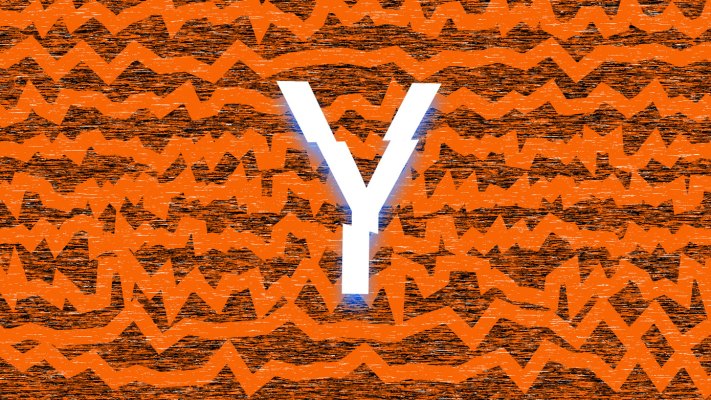Y Combinator is back, this time with a slightly smaller batch of startups. Still, the massive accelerator has two days’ worth of upstart tech companies to show off. TechCrunch is tuned in, as always, and in keeping with our historical coverage, we compiled a list of our favorites from the first day’s pitches.
For more on Y Combinator’s latest batch, TechCrunch examined the cohort’s diversity makeup, looked into fintech bets from the group and examined what’s going on in seed-stage crypto.
These are startups that stood out to us for one reason or another. They aren’t endorsements and sometimes are just for fun. The idea is that you might not have time to sit through over 100 pitches — so let us filter a bit and highlight some of the best companies from the first day of Y Combinator’s Summer 2022 Demo Day.
We’ve tagged each selection with the TechCrunch author who picked it and provided a link to the company, along with notes on what it does — and why we think it’s cool. Let’s have some fun!
Metriport
- Who picked it: Alex Wilhelm
- What it is: Metriport is building an API for healthcare data. In simpler terms, it’s building a way to move health-related data between entities; the startup compares itself to Plaid, which has built a similar system for fintech data.
- Why it’s a fave: I must admit a weakness for APIs in general, as well as a recent infatuation with open source code. Metriport is building a data-focused API for a simply huge market — and it claims that its software is open source. An open source API! Who would have thought? Regardless, if Metriport can get anything akin to a toehold of market share, it could build a home in between the myriad healthcare companies in the United States and extract a negligible fee for shuttling data. A small fee that would add up to a simply huge amount of money for the company. So it’s a fave for its approach to the market, and the fact that its market is hard to approach — not to mention huge.
- (Morf Health is working in a related space, I’d note, meaning that there were more health-data-focused companies in the batch than I anticipated!)
Anchor
- Who picked it: Tage Kene-Okafor
- What it is: Anchor provides APIs, dashboards and tools that help developers easily embed and build banking products, including APIs for creating bank accounts, fund transfers and savings products, as well as issuing cards and offering loans. It also provides regulatory coverage and continuous compliance support to partners.
- Why it’s a fave: Fintech is Africa’s hottest startup segment and one reason why it attracts the most VC dollars is because it’s expensive — consider integrations, compliance and licensing. Banking-as-a-service platforms globally, such as Unit and Treasury Prime, have helped newly launched fintechs offering neobank and embedded finance services scale to thousands of customers. As financial services proliferate across Nigeria and the rest of Africa, it’s logical that upstarts don’t build from the ground up but instead rely on BaaS platforms such as Anchor to go to market quickly, test hypotheses — failing fast, if need be — learn and launch.
Hilos
- Who picked it: Anna Heim
- What it is: Hilos is a Mexican startup that describes itself as “Zapier for WhatsApp” — it makes it easier for businesses to integrate WhatsApp into their workflow by connecting it to their CRM, payments platforms and more.
- Why it’s a fave: Hilos’ founders are tackling a problem — the need for better WhatsApp integration — that they experienced firsthand and that is not necessarily obvious to outsiders. If you’re reading this from the U.S, chances are you’re thinking of WhatsApp as a messaging app. This is true, of course. But in many countries, especially Spanish-speaking ones, WhatsApp is where companies conduct a lot of their business. This creates opportunities for solutions that go beyond what Meta is providing and that leverage APIs — a trend I have also been following for quite a while.
Capsule
- Who picked it: Christine Hall
- What it is: Capsule is building a platform that takes screen-captured images of products and matches them with a shoppable link. Or as the company put it, “buy anything you find on social media.”
- Why it’s a fave: I love shopping, but I don’t have time to search through dozens of “flamingo skirt” web images to find the one I saw an actress wearing in a recent Instagram post. I’ve written about so many startups trying to help brands find their edge among all of the products that flash in front of people on social media. However, if your products are in photos or videos that don’t describe what they are or who sells them, it’s hard to entice people to buy them. That’s the kind of thing that Capsule’s founders are trying to solve. The company only launched last week and users have already uploaded over 1,500 images to its app. Capsule was able to match 99% of them with shoppable links.

Image Credits: the_burtons (opens in a new window)/Getty Images
Knowtex
- Who picked it: Andrew Mendez
- What it is: Knowtex has launched a virtual medical assistant so doctors won’t have to stare at electronic health records, or EHRs, while conversing with a patient. The company utilizes AI machine learning with ICD-10 and CPT codes to synthesize data and create a visit and billing note a doctor just has to sign off on. In application, this is supposed to save a doctor time and reprioritize patient care.
- Why it’s a fave: On average, a doctor only spends 16 minutes with a patient during a visit, and in that time they are diagnosing and taking notes. The thought that a doctor will give you their full attention is mind-blowing, but that’s the problem Knowtex is attempting to solve. I’ve written stories and interviewed founders where the goal is to provide patients with more personalized care by eliminating doctors’ distractions because the patient needs to come first. As a queer man, managing the healthcare system for me is already difficult, and the times I wished a doctor would pay their undivided attention to me rather than taking notes is too many. Though Knowtex is entering a space where medical scribes already exist, they are also eliminating the need to have another individual in the room. Although the company is geared toward helping doctors save time with administrative work, the potential impact on patients is undeniably important.
Feather
- Who picked it: Natasha Mascarenhas
- What it is: Feather, co-founded by Saurabh Jain and Aahan Sawhney, wants to be a modern take on the 401(k) retirement account. The fintech play helps startups launch 401(k) benefits to their employees, claiming it takes minutes. Product features include a dashboard to manage the company’s plan, financial forecasting tools and integration with payroll providers.
- Why it’s a fave: Since launching six weeks ago, the company has landed $25,000 in ARR from 12 companies. While revenue is great, I like that it’s not just betting on that and product-market fit. During Demo Day, Sawhney noted that legislation is underway that would mandate small companies start offering retirement services to employees. Beyond the fact that it has some government tailwinds, the startup stood out to me because it’s disrupting the savings space during a time when people across the world are realizing that they aren’t the second coming of Warren Buffet. This all reminds me of SecureSave, which partners with companies to offer emergency savings accounts to employees. Unlike 401(k)s, ESAs allow employees to instant-access savings funding at any time. It could be a fun partnership! Or competitors! Who knows, but I’m excited by the focus.
Gullak Money
- Who picked it: Natasha Mascarenhas
- What it is: The fintech platform helps consumers save money and then invest the same savings into gold. On Gullak’s website, it shares a three-step approach. First, it helps folks set up a savings framework, either through automated recurring contributions, spare change roundups or one-off offerings. Then, Gullak says it invests said savings in pure gold, claiming that gold’s price has grown 80% over the past five years. Finally, it offers a way for folks to track their goals and land rewards when they hit specific milestones.
- Why it’s a fave: For some reason, I’m really into savings companies these days. Alternative asset investing had a mad rush of startups behind it in 2021, but the space has been quieter as markets reminded everyone of the existence of volatility. I like Gullak’s bullish bet on an alternative asset that, unlike NFTs, has been around for generations and elicits feelings of stability.
Shinkei Systems
- Who picked it: Alex Wilhelm
- What it is: What if you could use a “traditional Japanese method called ike-jime” to process fish after they are caught? Well, you’d have fresher and higher-quality food as a result. But it’s a lot of work, as TechCrunch noticed when we first covered Shinkei. The good news for fish lovers (ew, fish is gross!) is that the startup has built a robot that does it for fishers! And it can go on boats!
- Why it’s a fave: The way we currently cull and process meat products is insanely awful. Anything that we as a species can do to improve how we raise and kill animals for food is worth pursuing. What I dig about Shinkei is that it is, if my understanding is correct, a more humane way to kill fish (faster, less suffocation) that also leads to an improved product (helping fishers). We need to fish less to protect fish populations. Perhaps robots are the way to limit waste while also causing less harm.

Image Credits: Westend61/Getty Images
Relay
- Who picked it: Kyle Wiggers
- What it is: Relay aims to help those struggling with addiction overcome it through a network of close, openly supportive peers. The app matches users into a team of five to eight people, who together learn tips and techniques around emotional awareness and understanding the triggers behind their addictions. A “red flag” button lets the team know when any one member needs help right away or when they’re feeling particularly vulnerable about their struggle.
- Why it’s a fave: While platforms like Relay exist (and have for some time), I think there’s room in the space for a fresh approach. As the founding team members — who struggled with addiction — note, sufferers are often deterred from turning to friends, family, groups and professionals for help because of the shame, expense or a combination of the two. They say Relay is designed to provide an alternative path — one that’s a button press away. And that’s powerful.
Pana
-
- Who picked it: Anna Heim
- What it is: Pana is a challenger bank for Latinx individuals living in the U.S. It is tailored for their constraints — opening up accounts with a passport or Social Security number — and additional needs like sending remittances.
- Why it’s a fave: Team-problem fit seems strong on this one; both co-founders describe themselves as “second-time fintech founders,” and its CEO is a former head of digital banking at Scotiabank for the Caribbean and Central America. But more than fintech in itself, it’s the sizable social impact it could have that makes it a fave of mine. The promise of zero-fee remittances also sounds like it could make a difference.
Chowdeck
- Who picked it: Christine Hall
- What it is: Chowdeck is an app for people in Africa to order food from their favorite restaurants in three steps and have it delivered to their door in under 30 minutes.
- Why it’s a fave: I once watched an online delivery company, which will remain nameless, via its app, pick up my order, drive past my house and 40 minutes in the other direction instead of stopping and delivering my children’s lunch that included chocolate milkshakes. In July. The founders behind Chowdeck are former Paystack engineers who know the difficulties of routing payments where they need to go and have applied that to food delivery in Africa, initially in Nigeria. This is something the area clearly needed — the company has delivered over 80,000 meals in the last six months and has $35,000 in monthly revenue.
